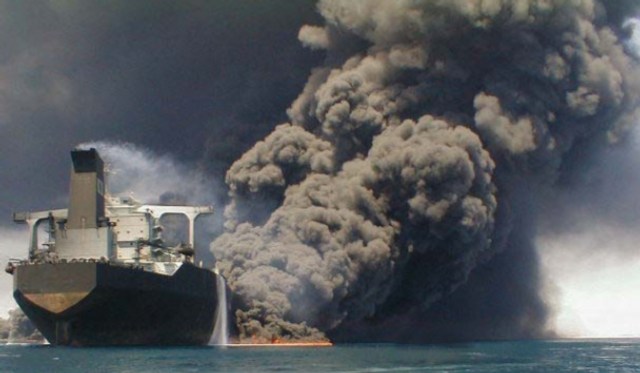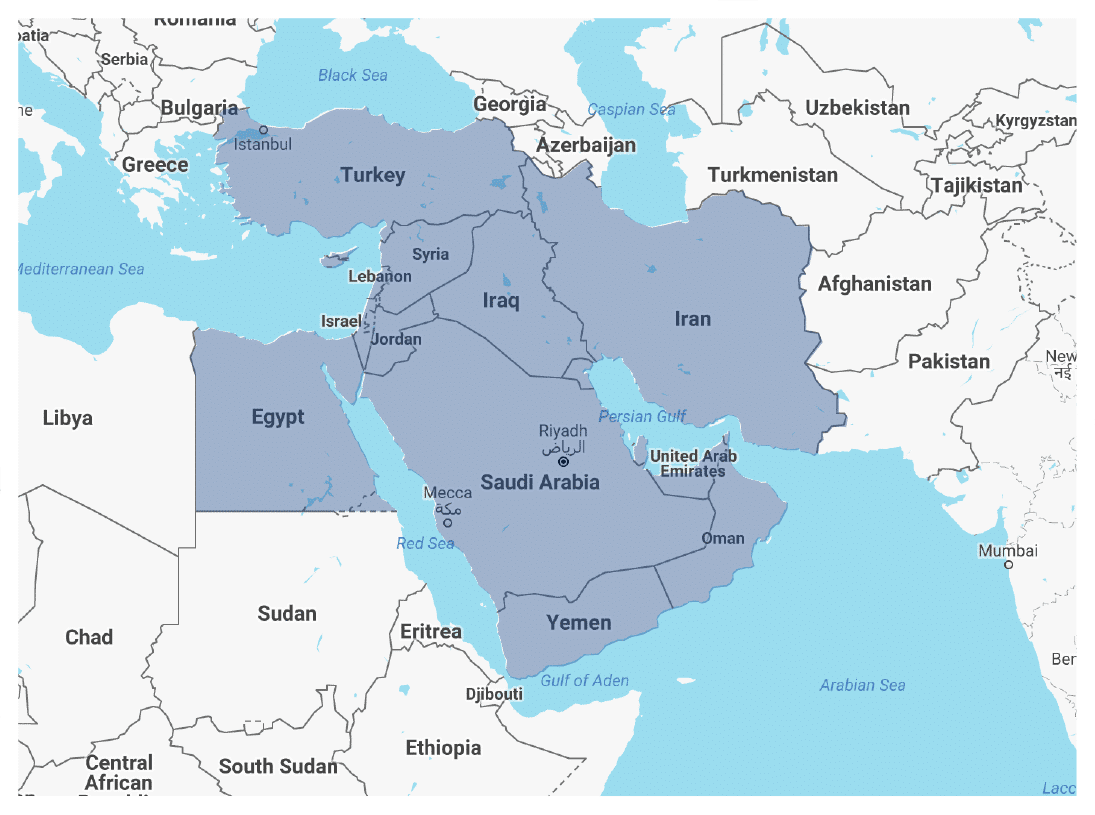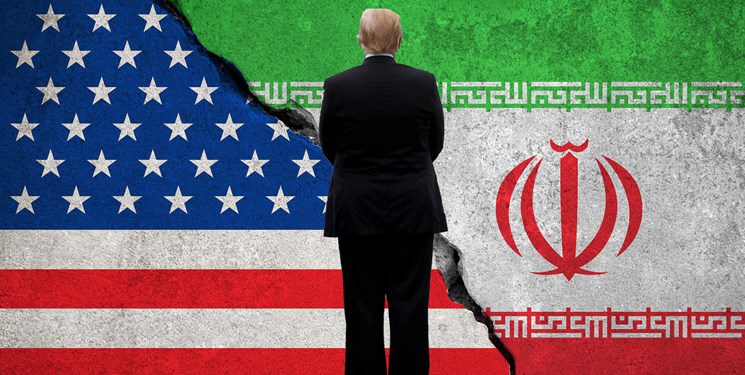War against Iran; A Wide and Regional Battle

About Warnalysis:
This is a constructed term, composed of Warning and Analysis. Warnalysis Tries to give strategic view about consequences of possible events on regional and global peace and security.
Yaser Nooralivand
By president Trump’s withdrawal from the Joint Comprehensive Plan of Action (JCPOA) and the Immersive economic war he has launched against Iran, the tension between Iran and US is turning into a military conflict, especially with the recent suspicious scenarios sabotage actions such as the attack on four tankers in Fujairah harbor as well as two tankers in the Oman Sea near the Strait of Hormuz, and most importantly, the US spy drone invading the territorial integrity of Iran. The truth is that Trump’s administration needs an urgent achievement in issues concerning Iran considering the impasse they are confronting in Iran’s case on the one hand, and approaching US presidential elections on the other hand. This goal will be achieved only via two options: war or negotiation.
On the contrary, the Islamic Republic of Iran neither thinks Trump’s administration is worth negotiating nor has the tendency to fight a war. Iran believes that renegotiation on an agreement, which is based on a global multilateralism approved by the United Nations Security Council, and has been previously broken off by Trump with no legitimate reason only due to his despotism and personal preference, accompanied by cruel unilateral sanctions, is deadly poisonous for the security and interests of the country. In other words, it is a negotiation that its outcome and future are already clear regarding the US current government’s logic and conditions. Moreover, although Iran has no tendency to negotiate, it is not also willing to start a war in an absolutely self-controlled and responsible manner as it considers this probable war extremely harmful to the regional and international order and security which will result is unpredictable consequences. Despite the pressure of severe and unprecedented sanctions and US numerous plots to bring Iran into a military conflict, the Islamic Republic of Iran has repeatedly stated that this country will not initiate a war while defending its borders and interests; however, it will absolutely defend its territory with full power in case of a war.
The extension of this current struggling – that is “the situation of neither war nor negotiation” interpreted as “resistance and not battle” in the words of the Supreme Leader of the Islamic Republic of Iran– has prevented Trump from achieving his goals of breaking off the JCPOA as well as fulfilling his slogans on the eve of the new Us presidential elections. He will face more criticisms from US citizens in the election days in case the current situation goes on. Therefore, it can be concluded that based on the strategic framework of Trump’s administration, Iran has only two choices: first, by putting the maximum pressure in different shapes on the Iranian government, it should be forced to accept a new agreement whose conditions and consequences are already specified by Trump’s administration, or Iran has to be pushed to a war, which though limited it may be, helps the US in getting out of this current deadlock.
This war should be managed in a way that both the US public opinion and the international community judge it as if Trump’s administration is a victim of Iran’s refusal to negotiate and this situation has left Trump with no choice but fighting the war. The approach of Trump’s administration, especially “the team B”, includes some leverages like economic pressure policies, repeating this hypocritical statement that they are willing to negotiate without any precondition and not interested in engaging in a war, as well as using the mediation diplomacy and provoking Iran to react and take military actions. If these leverages don’t persuade Iran to enter into the negotiation, they will at least introduce Iran as the reason of current tension and possible future war and put the US government at the moral position with an international support to attack Iran.
We cannot expect Iran to be open to the negotiation because the current logic of Trump’s administration for this agreement is not acceptable. Nevertheless, the approach adopted by Trump and his allies in the region against Iran may result in a “wide and regional battle”. Although Iran has repeatedly announced that it is not interested in fighting a war, it delivered its main messages through destroying the US spy drone: first, do not test Iran’s determination in defending its security and territorial integrity as this country will decisively respond any invasion; second, considering the technical and military capabilities as well as the regional means this country has, this response to any possible attack will be extremely accurate leading to unpleasant major consequences; and finally, the more the international pressures will be, the more national determination and solidarity will exist to stick to the resistance strategy.
In addition, it should be mentioned that Iran’s situation is totally different from Iraq’s in 2003; unlike Saddam’s administration in Iraq, Islamic republic of Iran has a network of influences and asymmetric means across the Persian Gulf and West Asia. Since these factors make Iran capable of spreading the war beyond its borders, and also as it is not possible for Iran to attack US because of the distance, Iran’s strategy against any military aggression will be to spread the battle throughout the US military bases and US regional allies in the area. In other words, the US allies and interests will be the hostages of Iran in case this country is the subject of any military attack. In this circumstance, carrying out any military action against Iran will be extremely costly and risky not only for US forces settled in the region but also for the security of US regional allies. It should also be remembered that the experience of war in the Syria and Libya showed that the civilian consequences of war for the region and Europe, are not less important than military consequences. In addition to this fact that the occurrence of a regional war will increase the range of fragile states in the region, it will turn into a factor to strengthen terrorism and masses of refugees to Europe.
Therefore, it is necessary that the international community, especially the countries located in the region and Europe- be awake about the dangers and consequences of the Trump’s militancy strategy, and take practical steps to prevent these actions while being careful not to fall into this trap themselves. Europe can take some actions in order to prevent the possible crisis including fulfilling their banking and oil-related obligations, pushing US to avoid increasing tensions and return to the JCPOA as the only solution for the current conflict. Moreover, ignoring the US sanctions and opening the borders to trade with Iran are also two significant actions expected to be taken by the Iran’s neighbor countries. Eventually, it is suggested that the US allies also play their role in preventing a comprehensive regional crisis through observing the neighborhood rules, avoiding hostility and tension, endeavoring to stop Trump from implementing maximum pressure policy against Iran, respecting the nuclear deal, and considering Iran’s constructive proposal for a regional dialogue in order to achieve sustainable peace and security in the region.


